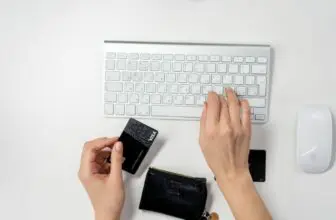In today’s busy world, life can be particularly hectic and overwhelming for busy women. Yet, taking the time and effort to practice self-care is essential for maintaining our physical, mental, and emotional health.
Today we are diving into some simple strategies and routine ideas which have been proven effective at helping you manage stress while promoting your overall sense of peace & balance.
Table of contents
What is Self Care and Why is it Important
Self-care is a holistic approach to wellbeing and health, focusing on all the areas of life–the physical, mental, emotional and spiritual. Self-care is anything we do intentionally to take care of our own needs – both mentally and physically – as part of a continuous effort over time.
It could be as simple as developing healthy habits such as getting enough sleep, eating nutritious meals or making sure to work out several times a week – or working on implementing broader lifestyle changes like creating a self-care plan dedicated to mental health and relaxation.
Taking care of ourselves has benefits beyond just feeling good in the moment; it can be integral in creating the confidence needed to tackle the challenges we face in our everyday lives. Busy women don’t need to completely restructure their daily routines in order to make time for self-care; taking small steps will suffice in providing them with an immediate sense of positivity that will last long after their self-care activities have ended!

Identifying Your Personal Self-Care Needs
For busy women, self-care is an important component of overall health and happiness. Identifying your own personal self-care needs can take some time and patience, but it is absolutely worth the effort.
It’s important to recognize the full range of emotions you experience in your daily life and use that information to guide your decision making. Having a clear idea of what works for you in terms of self-care – from meal planners to breathing exercises and more – can provide an empowering sense of control over your mental and physical wellbeing.
Investing this time in yourself will lead to long-term benefits that go beyond just feeling refreshed; prioritizing self-care gives women the opportunity to recognize their own needs while becoming more mindful of how they handle stress and other significant issues affecting their lives.
Self-care will not only increase your overall happiness, but also give you peace of mind that comes with knowing that you are taking care of yourself.
Types of Self-Care
In a world where many of us are busy juggling life’s demands, it can be hard to find the time for our own needs. Self-care is one of the best ways to ensure our both physical and mental health, helping us better manage stress levels and improve our overall well being.
There are many different types of self-care that cater to different personal lifestyles and needs. From healthy eating habits and regular exercise to meditation sessions and long baths, connecting with ourselves in meaningful ways can be an extremely beneficial practice.
Incorporating a variety of more personal activities like journaling or creative hobbies into our daily routines can also help support a healthier outlook on life. And don’t forget about social self-care through networking with friends!
The key is finding what works for you and taking the time to stick with it – that’s why some sort of consistency is important when creating a self-care routine or habit.
Let’s look at the different types of self-care!
1. Mental Health Self-Care
Mental health is a vitally important aspect of self-care. Taking steps to make sure you are taking care of yourself mentally is essential to leading an overall healthier life.
Unfortunately, mental illness affects many women today, making it all the more crucial for them to prioritize mental self-care. This could look like anything from ensuring you have time to just relax and practice self-love to seeking professional help if needed.
Mental self-care activities include:
- Reading
- Journaling
- Meditating
- Mindful breathing
- Practicing gratitude
- Playing brain games
- Listening to relaxing music
- Spending time in nature
Developing strategies and habits centered around the idea of mental self-care can have amazing wellbeing benefits that are worth looking into!

2. Physical Self-Care
Physical self-care is essential for overall well-being and can help to increase productivity as well as reduce stress. Regular physical activities such as exercise, stretching, or a massage can help to boost endorphins, helping to lift spirits, energize the mind and body, and reduce tension and stress. Even walking with a good posture will make you feel better.
Self-care routines involving physical activities do not need to be boring; they can include anything from simply going for a walk outside to dancing around the house.
Physical self-care activities include:
- Going for a walk or jog in the morning
- Attending an online yoga class
- Practicing healthy eating habits
- Getting enough sleep
- Drinking plenty of water
- Taking up a new sport
No matter how busy life gets, setting aside even just a few minutes everyday for some kind of physical activity could make all the difference in terms of health and happiness.
3. Emotional Health Self-Care
Taking care of yourself emotionally is just as important as taking care of your physical health. Neglecting your emotional well-being can have dire consequences, increase stress levels, and interfere with interpersonal relationships.
However, engaging in healthy forms of emotional self-care can help to restore balance and create better mental clarity in a person’s life. There are many strategies for managing emotions more effectively, such as setting healthy boundaries with oneself and others, meditating or doing breathing exercises to release tension from the body, talking to a trusted friend or professional about difficult feelings, and journaling thoughts on paper.
Emotional self-care activities include:
- Engaging in creative activities
- Spending time with friends and family
- Expressing yourself through art or music
- Practicing self-compassion and self-love
- Taking time to acknowledge and accept your emotions
- Spending time exploring what makes you feel joyful and fulfilled, such as hobbies or volunteering
All these activities are essential components of an effective self-care routine that can help women nurture their emotional health.

4. Spiritual Self-Care
Most of us have heard about taking care of ourselves, physical and mental health. However, there’s an equally important aspect of self-care; spiritual self-care.
Spiritual self-care involves connecting with a higher power and using that to build personal life satisfaction. This can be doing simple things such as dedicating time for prayer or meditation and being mindful of our thoughts and behaviors.
By seeking spiritual mindfulness, we can find the inner strength to live our lives in alignment with our values and beliefs. Spiritual self-care creates grace, resilience, hope and peace within us which will ultimately add value to our lives and relationships.
Spiritual self-care activities include:
- Spending time in nature
- Meditating or praying
- Reading spiritual texts
- Taking part in religious activities
Whether we are religious or not, taking time for spiritual self-care will help us thoroughly embrace ourselves and exercise true holistic well-being.
5. Environmental Self-Care
Busy women can benefit greatly from introducing environmental self-care into their routine. Quality of life as an individual has been linked to an environment that aligns with your values and habits, so it’s important to take steps to create such an atmosphere in home, work, or study space.
This could involve taking regular lunch breaks away from the desk or minimizing the number of hours spent in front of a computer screen. Additionally, creating an atmosphere conducive to reducing stress and cultivating feelings of calmness can be made by adding a few key items that promote relaxation.
Environmental self-care activities include:
- Creating a calming home office
- Adding plants to your work area
- Hanging pictures or quotes that provide positive reinforcement
- Including aromatherapy oils near your desk
- Working in a new remote location 1 or 2 days/week
Ultimately, self-care is about understanding our tolerance for work stress and being able to recognize our individual needs – and paying attention to the environment around us is one way we can do this.

6. Social Self-Care
Busy women often use social media to stay connected with family, friends, and colleagues. However, it is important to remember that real social connections come from face-to-face interactions with those special people in our lives.
One of the most beneficial forms of self-care is taking time to truly appreciate the people that are closest to us – whether it’s a close friend or an immediate family member.
Social self-care activities include:
- Spending time with friends and family
- Taking part in community events
- Joining discussion groups or clubs
Setting aside regular time for social sharing can help build strong relationships and reduce levels of loneliness, making us more open to new experiences and opportunities.
7. Financial Self-Care
Financial self-care is an often overlooked form of self-care. However, money affects all of us and managing it well is a vital component in creating a healthy lifestyle.
Taking the time to develop financial security can increase your overall sense of wellbeing, giving you the ability to try new things and make decisions with confidence. There are many strategies for good financial habits such as tracking spending or setting up savings for planned purchases.
Financial self-care activities include:
- Creating a budget
- Sticking to a budget
- Setting up an emergency fund
No matter the strategy that is chosen, making it a part of your regular routine can be beneficial and all individuals should take advantage of their own ability to do so.
8. Recreational Self-Care
For many people, recreational activities are an integral part of self-care. There are plenty of different options to explore when it comes to making the most of your valuable time and energy! Spending time on activities that you enjoy—whether it’s walking or jogging, or engaging in a creative pursuit—can do wonders in boosting your morale and helping you cope with life’s inevitable stresses.
A lot of people find that dedicating even just an hour or two a day to engaging in these types of activities is an important part of their practical self-care plan.
Recreational self-care activities include:
- Going to the movies or theater
- Playing sports and games
- Trying out a new hobby
Another great way to unwind and take care of yourself is through massage therapy in Goodyear, AZ or in your area. A professional massage can help relieve tension, improve circulation, and promote relaxation, making it a valuable addition to your self-care routine.
Understanding what type of recreational activities resonate with you can be key in developing healthy habits that will allow you to keep moving forward and take care of yourself in the long run.

Establishing Self-Care Rituals and Routines
Practicing self-care is a great way for busy women to stay well and manage stress. Establishing some self-care rituals and routines can help you prioritize your wellbeing and make it an integral part of your day.
There are many easy but effective ideas for self-care, such as taking a few minutes for meditation, indulging in a bubble bath, or dedicating some quality time for yourself every day. Moreover, setting regular times to practice self-care on a weekly basis will help create a sense of discipline and accountability so that you make sure to carve out the time needed to focus on yourself.
Start small by committing to just one or two self-care practices per week; over time you can increase this number.
Benefits of Implementing Self-Care Habits in Your Life
With the never-ending list of duties, roles, and expectations set upon us nowadays, it becomes difficult to prioritize our own mental well-being. But implementing healthy self-care habits in your life could be just what you need to gain back control.
By learning and utilizing effective coping strategies such as mindfulness-based activities and relaxation techniques, we can effectively cope with compassion fatigue. Additionally, prioritizing yourself regularly allows for an increase in self-confidence, better stress management skills, improved mental clarity and increased concentration.
Investing in a “me” time not only benefits you but also those around you by enhancing relationships. Pick up a hobby or join an activity club – anything that motivates and inspires you! Even something as simple as listening to music can become part of your regular self-care routine.
So why wait? Start making self-care a top priority by researching different self-care ideas and finding what works best for your personal lifestyle.

Wrap up – Taking the Necessary Steps to Prioritize Your Wellbeing
Every woman’s self-care journey is going to look different, depending on their unique needs. Making the necessary steps to prioritize your wellbeing may be daunting, but purposeful and achievable.
Once you have identified a few of the areas that could use some extra attention, create a to-do list with realistic and attainable goals. Don’t forget the importance of having a visit with your healthcare provider – it can provide invaluable knowledge and support during this time.
It’s also important to think not just about immediate changes in practices or habits, but sustainable ones. That means integrating small healthy practices into your daily routine; such as mindful breathing for five minutes in a quiet environment or setting aside an evening each week for some “me time” are excellent starting points from which you can build from on your self-care journey.
It’s time to craft a self-care routine through rituals, activities, changes that best fit your lifestyle and get started on giving yourself the attention and love you deserve. No matter where you are in your wellness journey, taking the necessary steps to prioritize your wellbeing should be your number one goal.
If you need guidance or help getting there, download my free self-care workbook now. Remember: self-care starts with understanding yourself first before anything else and committing the time to recreate equilibrium both within and around yourself. Be kind to yourself!






